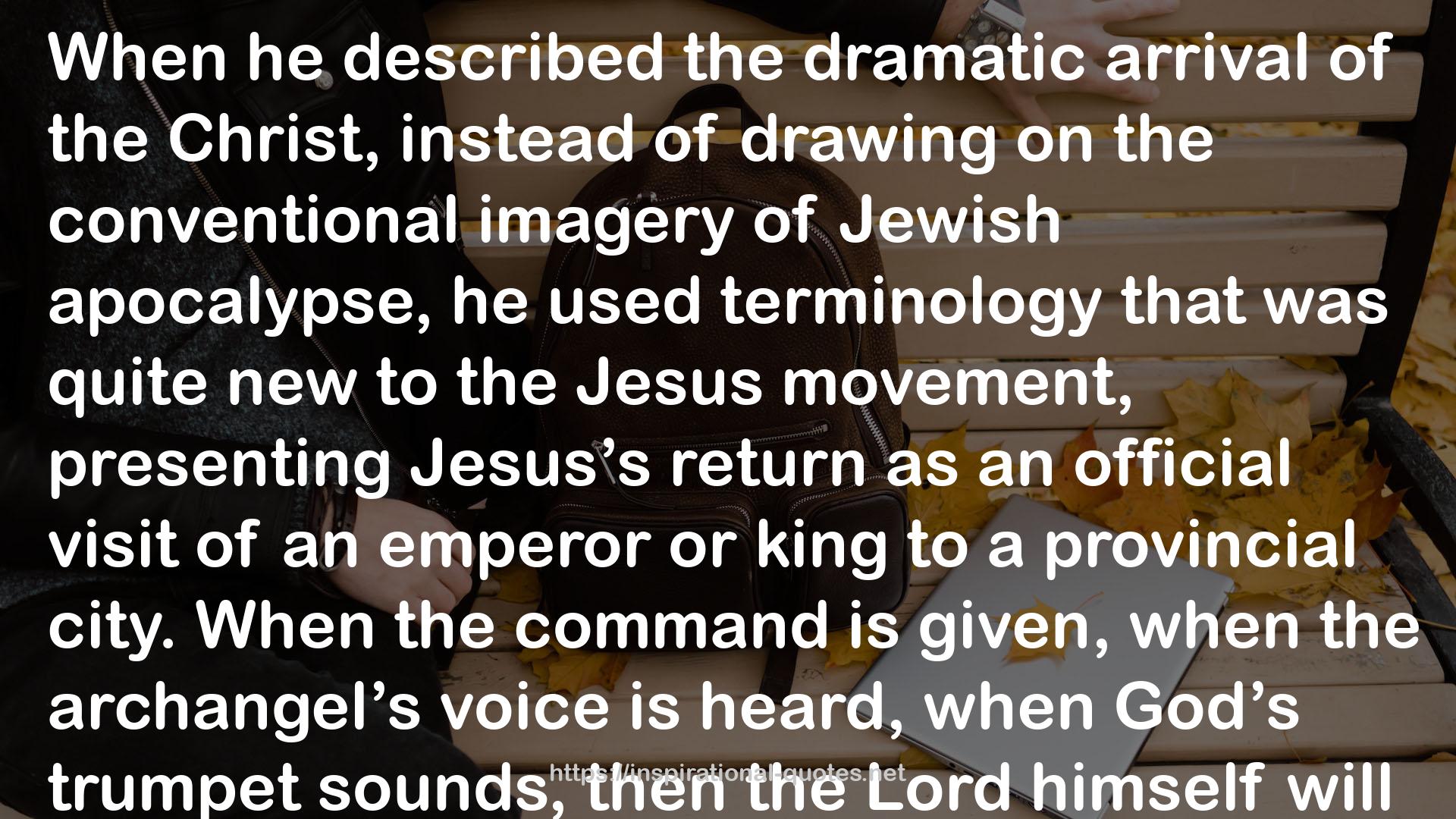" When he described the dramatic arrival of the Christ, instead of drawing on the conventional imagery of Jewish apocalypse, he used terminology that was quite new to the Jesus movement, presenting Jesus’s return as an official visit of an emperor or king to a provincial city. When the command is given, when the archangel’s voice is heard, when God’s trumpet sounds, then the Lord himself will descend from heaven; first the dead who belong to the Messiah will arise, then we who are still alive shall join them, caught up in the clouds to meet the Lord in the air.59 The word parousia (“presence”), which referred to the ceremonial “arrival” of the visiting emperor, recurs throughout the letter.60 As soon as the officials heard that the emperor was actually approaching the city, the trumpet would sound and a delegation of local dignitaries would pour through the city gates and surge toward him for the ritualized apantesis (“meeting”).61 In Paul’s description, of course, Jesus, the true Kyrios, has replaced Claudius and the people who throng to meet him are Paul’s converts, who are no longer the weak and oppressed inhabitants of the city but its most privileged citizens. They will go up in the air to greet their Lord and bring him down to earth. In the person of Jesus, his representative, God would, as it were, leave the heavenly realm and join the common people. "
― Karen Armstrong , St. Paul: The Apostle We Love to Hate (Icons)
